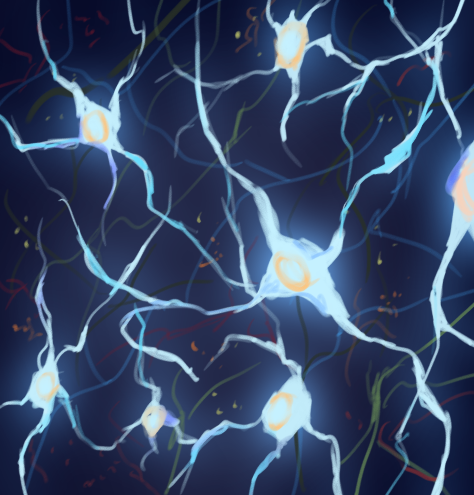Ezogabine: A New Drug for Treating Major Depressive Disorder
- Science Holic
- Sep 30, 2025
- 3 min read
Author: Vincent Guo
Editor: Oscar Chen
Artist: Becky Li

Major depressive disorder is a condition that affects over 300 million people. However, there are many kinds of medications that can help treat this condition. Some of these medications include selective serotonin reuptake inhibitors and serotonin-norepinephrine reuptake inhibitors which are drugs that can help increase serotonin in the body. One theory suggests that depression is caused by a deficiency of serotonin in the brain; however, this is considered unlikely. Although low serotonin levels have been observed in people with major depressive disorder in recent studies, they do not cause it. Serotonin is a type of neurotransmitter which allows for the body and brain to communicate with each other. Since studies show that a lack of serotonin does not affect whether you have depression or not, the medication is ineffective and many people continue to suffer from major depressive disorder even while taking those medications.
Researchers are now looking for alternative solutions, one of which is Ezogabine. This drug was originally used for seizures in epilepsy, but was later discontinued for safety concerns and its limited use. Ezogabines activate a certain type of potassium channel (KCNQ channels) in the brain that helps regulate neuronal excitability, which reduces seizures. Now, Ezogabine is seeing a return, now being used to treat major depressive disorders. Researchers have found that unusual neuronal excitability of the brain circuits that are connected to reward, motivation, and emotional regulation may be the cause of the symptoms of major depressive disorder. This is different from the other form of medication like Selective Serotonin Reuptake Inhibitors (SSRIs) to treat major depressive disorder because selective serotonin reuptake inhibitors and serotonin-norepinephrine reuptake inhibitors increase the amount of serotonin, which targets the chemical part of the brain. In contrast, Ezogabine targets the bioelectrical part of the brain, which relies on electrical signals from neurons to communicate with each other.

Unlike the traditional antidepressant drugs that are currently being used by many patients suffering from Major Depressive disorders, Exogabine targets neural excitabilities through potassium channels instead of targeting neurotransmitters like serotonin. This could benefit patients who do not respond well to traditional antidepressants and continue to suffer from major depressive disorder. In addition, there are clinical trials that show that the drug is helping reduce the symptoms of major depressive disorder faster than the standard antidepressant drugs. While there is good news about Ezogabine, there is a reason why it has been removed and discontinued for treating seizures in epilepsy. The drug comes with many side effects such as urinary retention, dizziness, drowsiness, and even blue skin discoloration. Because of all these side effects, researchers had decided to lower the dosage and the length of treatment to try to reduce these side effects.

Ezogabine, a drug that was abandoned and wasn't optimal to be used to treat seizures in epilepsy, can be the new hope for patients who have major depressive disorder and cannot be treated with the standard antidepressant drugs. Even though there are risks with safety and long-term use of the drug, it could serve as an alternative option for patients.
Citations:
Chowdhury A;Boukezzi S;Costi S;Hameed S;Jacob Y;Salas R;Iosifescu DV;Han MH;Swann
A;Mathew SJ;Morris L;Murrough JW; (n.d.). Effects of the KCNQ (KV7) channel opener
Ezogabine on resting-state functional connectivity of striatal brain reward regions, depression, and anhedonia in major depressive disorder: Results from a randomized controlled trial.
Biological psychiatry. https://pubmed.ncbi.nlm.nih.gov/40049579/
Zagorski, N. (2021b). Ezogabine shows promise as antidepressant. Psychiatric News, 56(6).
Ezogabine: Uses, interactions, mechanism of action | drugbank online. (n.d.-a).
Ezogabine: Indications, side effects, warnings. Drugs.com. (n.d.).
Mayo Foundation for Medical Education and Research. (n.d.). Ezogabine (oral route). Mayo Clinic. https://www.mayoclinic.org/drugs-supplements/ezogabine-oral-route/description/drg-20075057



Comments